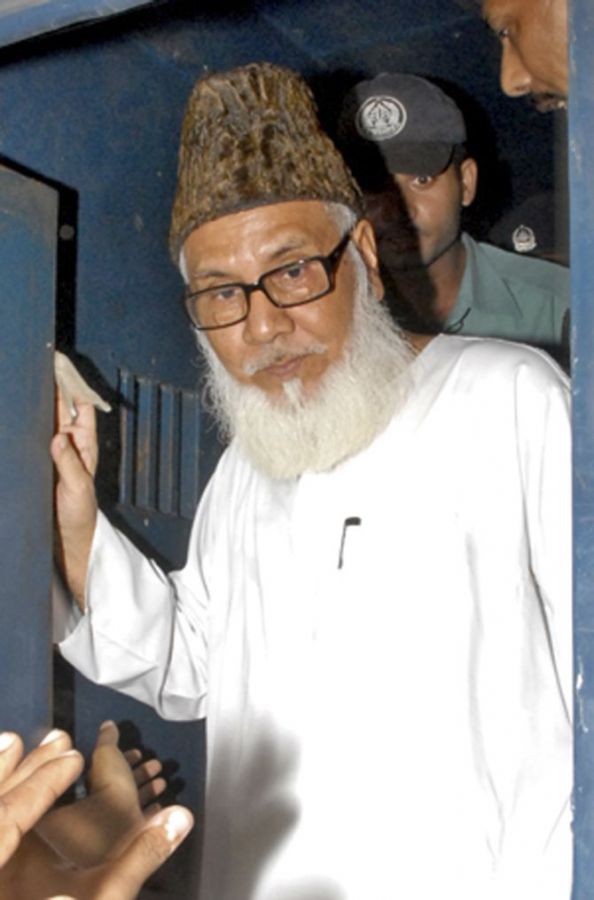 Bangladesh’s Supreme Court on Wednesday upheld the death sentence of a top leader of fundamentalist Jamaat-e-Islami for crimes committed by him during the 1971 liberation war against Pakistan, clearing the way for his execution.
Bangladesh’s Supreme Court on Wednesday upheld the death sentence of a top leader of fundamentalist Jamaat-e-Islami for crimes committed by him during the 1971 liberation war against Pakistan, clearing the way for his execution.
A four-member bench, headed by Chief Justice S K Sinha, dismissed an appeal by Motiur Rahman Nizami, chief of Jamaat-e-Islami, who orchestrated the massacre of Bangladesh’s best brains in 1971 using his ruthless al-Badr militia.
"The apex court has put the seal on his death penalty handed down previously by the (Bangladesh’s) International Crimes Tribunal," senior prosecution lawyer Jiad Al Malum said.
A large number of people rallied outside the heavily-guarded court complex to welcome the verdict.
The court upheld capital penalty for 73-year-old Nizami in three charges and life imprisonment in two charges.
Chief defence counsel Khondker Mahbub Hossain petitioned for commuting his death sentence to life imprisonment considering his old age.
Nizami is the last remaining top perpetrators of crimes against humanity.
Bangladesh's International Crimes Tribunal in October, 2014 sentenced him to death, a verdict which the Supreme Court subsequently upheld.
Nizami then sought to get the apex court verdict reviewed by itself in his last ditch effort to evade the gallows.
In 1971, Nizami was the chief of Islami Chhatra Sangha, then student wing of Jamaat. He also headed the al-Badr militia created by the Pakistan army to suppress the Bengali rebellion.
The tribunal said Nizami had been involved in 'planning and conspiring' mass killings, murders, rapes and looting at different villages in Pabna.
Nizami now faces execution unless his case is reviewed by the court or he is granted clemency by the President.
Jamaat's secretary general Ali Ahsan Mohammad Mujaheed, who was also Nizami’s top aide in 1971, was executed last year along with Salauddin Quader Chowdhury, a stalwart of the key opposition Bangladesh Nationalist Party, which is a crucial ally of the fundamentalist party.
Bangladesh has so far executed four war crimes convicts since the belated trial process of the top Bengali perpetrators of 1971 atrocities started in line with the electoral commitment of Prime Minister Sheikh Hasina in 2008.
Two others -- former Jamaat chief Ghulam Azam and ex-BNP minister Abdul Alim -- earlier were handed down ‘imprisonment until death’ instead of capital punishment considering their old age. They subsequently died in the prison cells of a specialised state-run hospital.
Bangladesh says three million people were killed during the nine-month liberation war against Pakistan in 1971.











 © 2025
© 2025